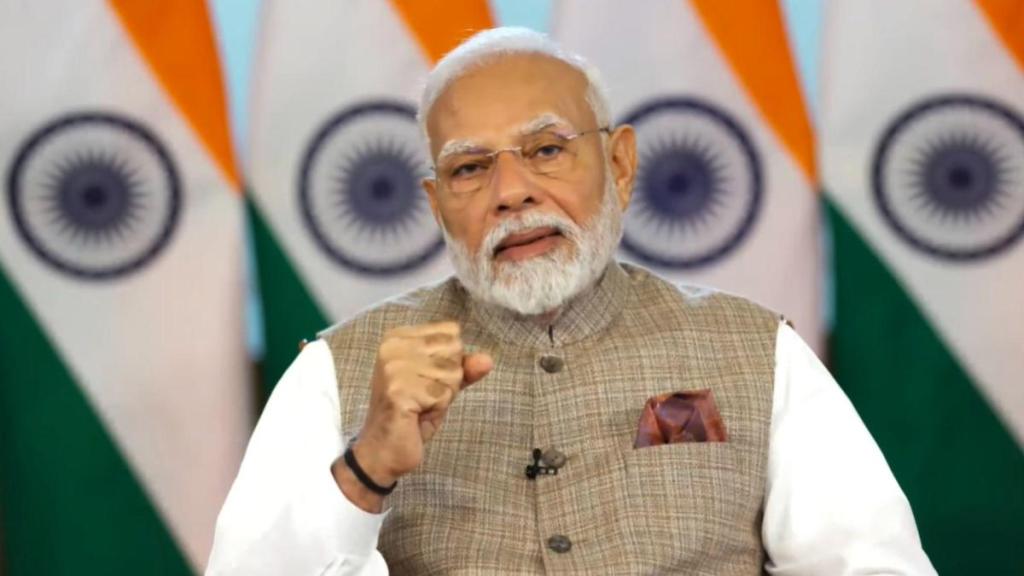Prime Minister Narendra Modi on Thursday advocated for a “one nation, one civil code” in India, asserting that the proposed code would be “secular” and aimed at reinforcing national unity. Speaking near the Statue of Unity in Ekta Nagar, Gujarat, on the birth anniversary of Sardar Vallabhbhai Patel, the PM emphasized the importance of unity, warning of forces attempting to divide the nation.
The PM’s remarks came on Rashtriya Ekta Diwas, or National Unity Day, in honor of Sardar Patel, whom he credited with envisioning and realizing a unified India after independence. Modi announced that a two-year celebration would culminate on October 31, 2025, to mark the 150th birth anniversary of the “Iron Man of India.”
“The policies and the intentions of the previous governments had the expression (bhaav) of discrimination (bhed bhav). It was weakening the unity of the country… In the last 10 years, the new model of good governance has eliminated every echo of discrimination. We have chosen the path of Sabka Sath Sabka Vikas and all beneficiary schemes are reaching all homes without any discrimination… This trust will boost India’s development. I am confident that in all our policies, decisions and intentions, unity is our pranshakti and Sardar saheb’s soul, wherever it may be, is blessing us,” the PM said.
Highlighting the challenges facing the nation, PM Modi cautioned against what he called “urban Naxals” who seek to “paint India’s image in a negative light”, even targeting India’s defense forces. He urged citizens to remain vigilant and expose any individuals involved in such divisive activities.
During his address, PM Modi outlined several unified policy initiatives, including GST as “one nation, one tax”, Ayushman Bharat as “one nation, one health insurance”, and Aadhaar as “one nation, one identity”. He described these measures as efforts to streamline governance and strengthen inclusivity across the nation. Further, he expressed support for a future “one nation, one election” system, arguing that it would streamline governance and enhance the democratic process.
The Prime Minister also praised the implementation of the “one nation, one Constitution” principle following the abrogation of Article 370 in Jammu and Kashmir. He highlighted the significance of the recent democratic developments in Jammu and Kashmir, where the newly elected government, under the Indian Constitution, marked a departure from decades of discrimination. “For 70 years, Baba Saheb Ambedkar’s Constitution had not been implemented across the entire nation,” he said, adding that the recent shift had enabled the people of J&K to exercise their constitutional rights fully.
Modi also emphasized that the abrogation of Article 370, which allowed Jammu and Kashmir unique privileges and led to a lack of full constitutional integration, had ended a long-standing barrier. “For the first time, people voted for a government without discrimination,” Modi noted, crediting this political shift as a victory for Indian democracy and the Constitution.
(With inputs from agencies)

